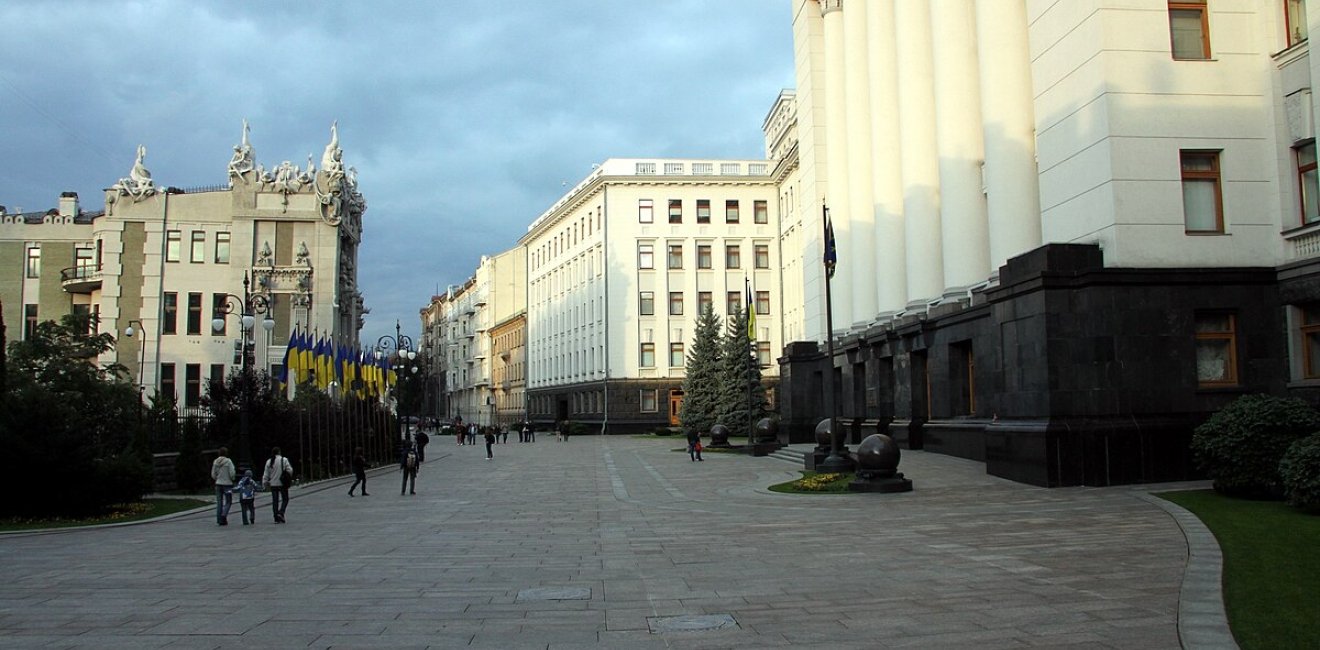
A blog of the Kennan Institute
On November 5, Ukrainian government officials watched anxiously as American citizens elected the next president of the United States. During the campaign, President-elect Trump argued that he could end the Russo-Ukrainian war in a day. He also said that the Ukrainians should be forced to negotiate with the Russians and that there must be peace. How do Ukrainian officials perceive the results of the election? What do Ukrainians think a second Trump administration will mean for US-Ukraine relations?
Responses from Ukraine’s Current and Former Presidents
First, Ukrainian president Volodymyr Zelensky. Following the announcement that Trump had been elected for a second term, the Ukrainian president quickly called the president-elect to congratulate him on his victory.
“Congratulations to Donald Trump on his impressive election victory!” Zelensky posted on his X account. “I recall our great meeting with President Trump in September, where we discussed in detail the Ukraine-US strategic partnership, the Victory Plan [for Ukraine], and ways to put an end to Russian aggression against Ukraine. I appreciate President Trump’s commitment to the ‘peace through strength’ approach in global affairs. I am hopeful that we will put it into action together.”
As president of Ukraine, Zelensky has worked with Trump and knows the incoming president well. Zelensky hopes the two leaders will continue building positive US-Ukraine relations during Trump’s second term.
Former Ukrainian president Petro Poroshenko, who leads the European Solidarity party, also congratulated President-elect Trump on his victory. Poroshenko, who also worked with Trump during his first administration, said he hoped the United States and Ukraine would be “able to put an end to Russia’s war of aggression against Ukraine and the entire free world.” Poroshenko added that he believed the “strategic partnership between Kyiv and Washington will be further strengthened in the interests of peace, security, and stability in a world based on rules, not force.”
Responses from Ministers and Elected Officials
While President Zelensky and former president Poroshenko quickly congratulated Trump, other Ukrainian officials have been more cautious in reacting to the news. These individuals have stated they are unsure what the election results will mean for the US-Ukraine relationship.
“Trump brings new risks and opportunities for Ukraine,” said former Ukrainian minister of foreign affairs Dmytro Kuleba. “It now depends on the skill of the Ukrainian government to minimize the former and maximize the latter.” In the meantime, Kuleba proposed that remaining “calm” was best, given all the uncertainty.
Similarly, Oleksandr Merezhko, the chairperson of the Verkhovna Rada’s Committee on Foreign Affairs, said that “Trump’s victory means both a challenge and an opportunity” for Ukraine. He hoped Ukraine’s relationship with the United States would grow during Trump’s second presidency.
Finally, there are Ukrainian elected officials who are wary of a second Trump presidency. While some Ukrainians have welcomed Trump’s presidency, believing it will bring a swifter end to Russia’s invasion, others are less certain.
For example, Mykola Kniazhytskyi, a lawmaker from Poroshenko’s European Solidarity party, argued that Trump’s “statements during the election campaign . . . could not be perceived positively in Ukraine.” He added that he did not “rule out the possibility that the U.S. aid to Ukraine [could] be reduced.”
Volodymyr Aryev, a colleague of Kniazhytskyi from the same European Solidarity party, agreed. “We [cannot] forget about [Trump’s] foreign policy announcements made before the election,” he said. In his view, President-elect Trump is “unpredictable.”
Soldiers and Citizens
Aside from these politicians, some Ukrainian soldiers and citizens are uncertain about a Trump presidency. Many are fearful that a second Trump term will lead to a decline in aid to Ukraine. These servicemen and women, as well as civilians interviewed by various media outlets, do not want Ukraine to be forced into peace negotiations with Russia.
Thousands of Ukrainian lives have been lost during the Russian invasion. To date, one-fourth of Ukraine’s population remains displaced. Countless cities, villages, and towns have been destroyed, and it is estimated that it will cost over $1 trillion to rebuild Ukraine. Given this degree of death and destruction, Ukrainians want nothing more than the war to end.
But most Ukrainians argue that wanting the war to end does not mean they should capitulate to Russia. Instead, most Ukrainians believe that the only way to end the Russian invasion is by forcing the Russians entirely out of Ukraine. They will not accept any other outcome. Many Ukrainians, therefore, are wary of Trump’s proposed peace plans as they are unsure what such plans might entail.
A Spectrum of Opinion on the Future U.S.-Ukraine Relationship
In short, there appears to be a wide variety of opinions within Ukraine about what a second Trump presidency will mean for US-Ukraine relations. Some believe it will be an opportunity to strengthen this relationship, and these politicians and individuals look forward to cooperating with the second Trump administration. Others are cautious in their responses to the news, ensuring they do not set expectations as they engage in this new relationship. Finally, some Ukrainians view the election of Trump as a doom-and-gloom scenario for Ukraine.
Given these differing opinions, no one knows how the US-Ukraine relationship will unfold during a second Trump presidency. Perhaps Ukraine’s first deputy chairman of the Finance, Tax, and Customs Policy Committee, Yaroslav Zhelezniak, has said it best.
“Everyone is asking how [Trump] will influence [America’s relationship] with Ukraine,” Zhelezniak said. “From my point of view . . . we don’t know what it means, better or worse.”
Time will tell how the US-Ukraine relationship will unfold. The only way to learn what this will mean is to be patient and wait to see what unfolds.
The opinions expressed in this article are those solely of the author and do not reflect the views of the Kennan Institute.
Author


Kennan Institute
The Kennan Institute is the premier US center for advanced research on Eurasia and the oldest and largest regional program at the Woodrow Wilson International Center for Scholars. The Kennan Institute is committed to improving American understanding of Russia, Ukraine, Central Asia, the South Caucasus, and the surrounding region through research and exchange. Read more

Explore More in Focus Ukraine
Browse Focus Ukraine
Talking to the Dead to Heal the Living

Ukrainian Issue in Polish Elections


